
2015 has so far not been a good year for inter-religious dialogue. This is clearly evident from the perspective of Turkey. As a predominantly Muslim country, Turkey has seen various Christian groups’ attempts to gang up through the abuse of the dispute over the events of 1915. The actions of the Roman Catholic Church (the largest Christian denomination in the world) and the World Council of Churches (the largest Christian church association in the world)[1] serve as two important pillars of the less-than-friendly attitude of the various Christian groups towards Turkey.
This religious oriented approach, without taking the time to assess the veracity of the claims of genocide regarding the events of 1915, has adopted the Armenian narrative as undisputable fact and has proceeded to act with this assumption. The only logical explanation for this unquestioning adoption of the genocide claims is that such claims are mainly propagated by Armenians (who are predominantly Christians) against the predominantly Muslim Turkey, against whom exists an unsurmountable historical religious grudge.
Flying in the face of previous calls for inter-religious dialogue and despite his own overall open-minded attitude, this year Pope Francis of the Roman Catholic Church has obsessively voiced the genocide narrative regarding the events of 1915. He had already caused a controversy when he indirectly referenced this narrative during a religious ceremony on April 12 this year,[2] since he demonstrated no coherent understanding of what the term “genocide” actually means, yet felt entitled to point it at Turkey and its past. The Pope’s action had drawn strong reaction from Turkey and noticeably strained the relations between Turkey and the Papacy.
The Pope seemed to have taken a step back after the amount of criticism he drew for his remarks during April 12. Yet he seems to have decided to push on with this issue. During a religious ceremony in Vatican City on September 7, the Pope yet again made references to the Armenian narrative of the events of 1915, this time by employing the worn out clichés of the genocide narrative.[3]
One credible explanation for the Pope’s insistence on latching onto the genocide narrative in spite damaging relations with Turkey is that it serves as a convenient tool to forge solidarity among Christians by invoking the image of the menacing Islam that victimizes innocent Christian groups (the concepts of Christian victimhood and martyrdom are clearly invoked in the Pope’s September 7 speech). The Roman Catholic Church sees “itself as the one true church of Christianity, and all other churches as those which have lost their way and which must eventually be brought back into the fold.”[4] Especially the Armenian Apostolic Church (the national church of the Armenian people), which lobbied for the Pope to adopt the genocide narrative in 2015, but also other Christian churches have expressed their approval of the Pope’s current discourse. As such, the Pope utilizes the genocide narrative to garner appraisal and thus elevate the Papacy’s standing in the Christian world. Yet at the same time, the Pope scapegoats Islam in general and Turkey in particular without regard for the negative ramifications that this might have in terms of Christian-Muslim dialogue.
Meanwhile, the Armenian Apostolic Church this year has utilized every available resource to propagate the genocide narrative, infuse it with religious undertones, and accuse Turkey of failing to face up to the “reality” of the genocide narrative. Bypassing all the complexity of the events of 1915, it has categorically canonized allegedly 1.5 million Armenian victims.[5] Let us leave aside the fact that the figure 1.5 million is nonsense. The Church has declared 1.5 million people as having been saints without even knowing their names, their actual number, their exact circumstance of death, or their deeds throughout their lives. Although supposedly done for religious reasons, when analyzed from the broader perspective of the highly politicized dispute over the events of 1915, the Church’s canonization can be interpreted as being nothing short of a political move. The Church has sought instill a sense of religious legitimacy to the genocide narrative by invoking the image of 1.5 million saints who gave up their lives in the name of their Christian faith against the “oppressive and cruel Muslim Turks”.
It is in such an atmosphere that Aram I, the Catholicos of the Holy See of Cilicia (one of the four administrative units of the Armenian Apostolic Church), has made a call for inter-religious dialogue between Christians and Muslims. According to Aram I, this is not an option but a necessity in today’s globalized world where different communities frequently required interact with each other.[6] According Aram I, dialogue between religious groups should “aim at accepting each other, trusting each other, and working together on issues of common concern.” He added that dialogue should prioritize “respecting specificities and deepening commonalities; identifying common areas of joint engagement and action…”
Every sensible human being can agree to Aram I’s words. His words reflect a very appropriate way of approaching dialogue between different groups of human beings who may at times be very different from each other. Yet Aram I’s sensible words are at a stark contrast to the current attitude of the Armenian Apostolic Church (in which Aram I is a top official) that attempts to scapegoat a major Muslim country like Turkey and also Turks at every turn. The Church’s incessant drive to have the genocide narrative established as an undisputable fact and viciously criticizing anyone who thinks otherwise has effect of propagating Turcophobia and Islamophobia.
In such a context, Aram I’s otherwise sensible words come off as being highly insincere, even hypocritical, from the Turkish perspective. It is very difficult to engage in meaningful, constructive dialogue with someone or some institution when they categorically accuse you and attempt to smear your name due to your views on a hotly debated issue such as the events of 1915. As such, in the current atmosphere, Aram I’s otherwise valuable words end up having no real weight, and therefore no real consequence.
[1] Mehmet Oğuzhan Tulun, “Turkish-Armenian Controversy Continues to be Instrumental for the Church To Incite Religious And Ethnic Animosity”, AVIM, http://www.avim.org.tr/yorumnotlarduyurular/en/TURKISH-ARMENIAN-CONTROVERSY-CONTINUES-TO-BE-INSTRUMENTAL-FOR-THE-CHURH-TO-INCITE-RELIGIOUS-AND-ETHNIC-ANIMOSITY/4121
[2] Mehmet Oğuzhan Tulun, “Introducing Religion into a Legal and Historical Dispute”, AVIM, http://www.avim.org.tr/yorumnotlarduyurular/en/INTRODUCING-RELIGION-INTO-A-LEGAL-AND-HISTORICAL-DISPUTE---Mehmet-Oguzhan-TULUN/3995
[3] “Pope Francis Pays Tribute to Armenian Genocide Martyrs”, MassisPost, http://massispost.com/2015/09/pope-francis-pays-tribute-to-armenian-genocide-martyrs/ ; also see: “Pope Francis Remembers Armenian ‘Christian Martyrs’”, Azatutyun.am, http://www.azatutyun.am/content/article/27233625.html
[4] Mehmet Oğuzhan Tulun, “What is the World Council of Churches”, AVIM Report, http://www.avim.org.tr/uploads/raporlar/Rapor-5.pdf
[5] “Armenian Apostolic Church canonizes victims of Armenian Genocide”, EcumenicalNews.com, http://www.ecumenicalnews.com/article/armenian-apostolic-church-canonizes-victims-of-armenian-genocide-28232
[6] “’Inter-Religious Dialogue is no more a Question of Option; it is a Must’ His Holiness Aram I”, ArmenianOrthodoxChurch.org, http://www.armenianorthodoxchurch.org/en/archives/13581
© 2009-2025 Center for Eurasian Studies (AVİM) All Rights Reserved
No comments yet.
-
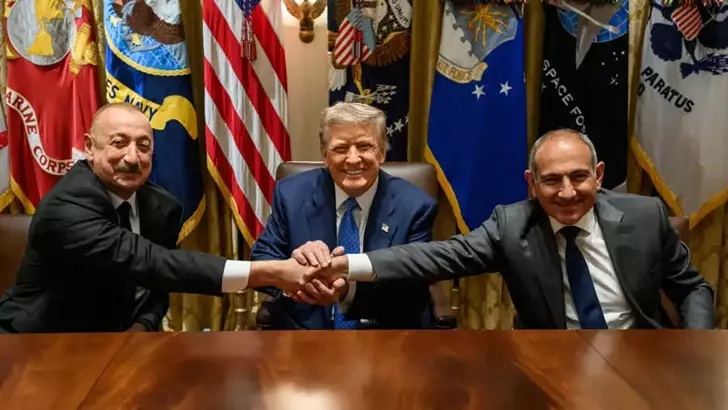 MISREADING THE ARMENIA-AZERBAIJAN PEACE PROCESS THROUGH THE DIASPORA LENS
MISREADING THE ARMENIA-AZERBAIJAN PEACE PROCESS THROUGH THE DIASPORA LENS
Mehmet Oğuzhan TULUN 13.02.2026 -
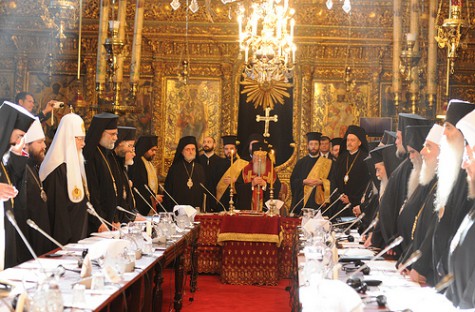 ORTHODOX COUNCIL TO MEET AFTER 1200 YEARS
ORTHODOX COUNCIL TO MEET AFTER 1200 YEARS
Mehmet Oğuzhan TULUN 09.04.2014 -
 A HYPOCRITICAL CALL FOR INTER-RELIGIOUS DIALOGUE
A HYPOCRITICAL CALL FOR INTER-RELIGIOUS DIALOGUE
Mehmet Oğuzhan TULUN 17.09.2015 -
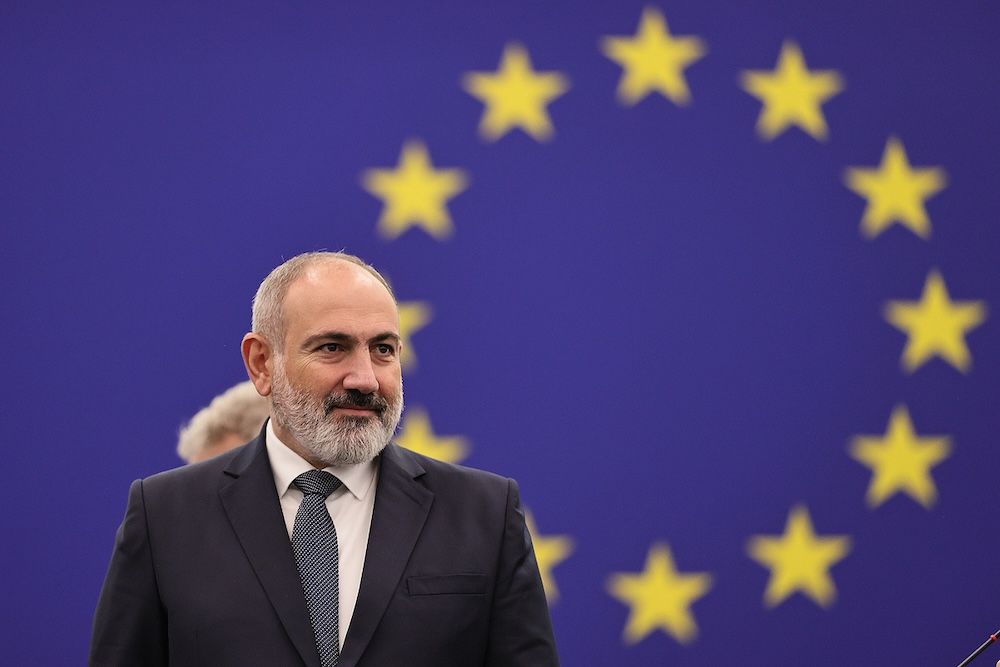 AZERBAIJAN-ARMENIA PEACE TREATY PROCESS AND ATTEMPTS TO UNDERMINE TÜRKİYE-AZERBAIJAN RELATIONS
AZERBAIJAN-ARMENIA PEACE TREATY PROCESS AND ATTEMPTS TO UNDERMINE TÜRKİYE-AZERBAIJAN RELATIONS
Mehmet Oğuzhan TULUN 28.05.2025 -
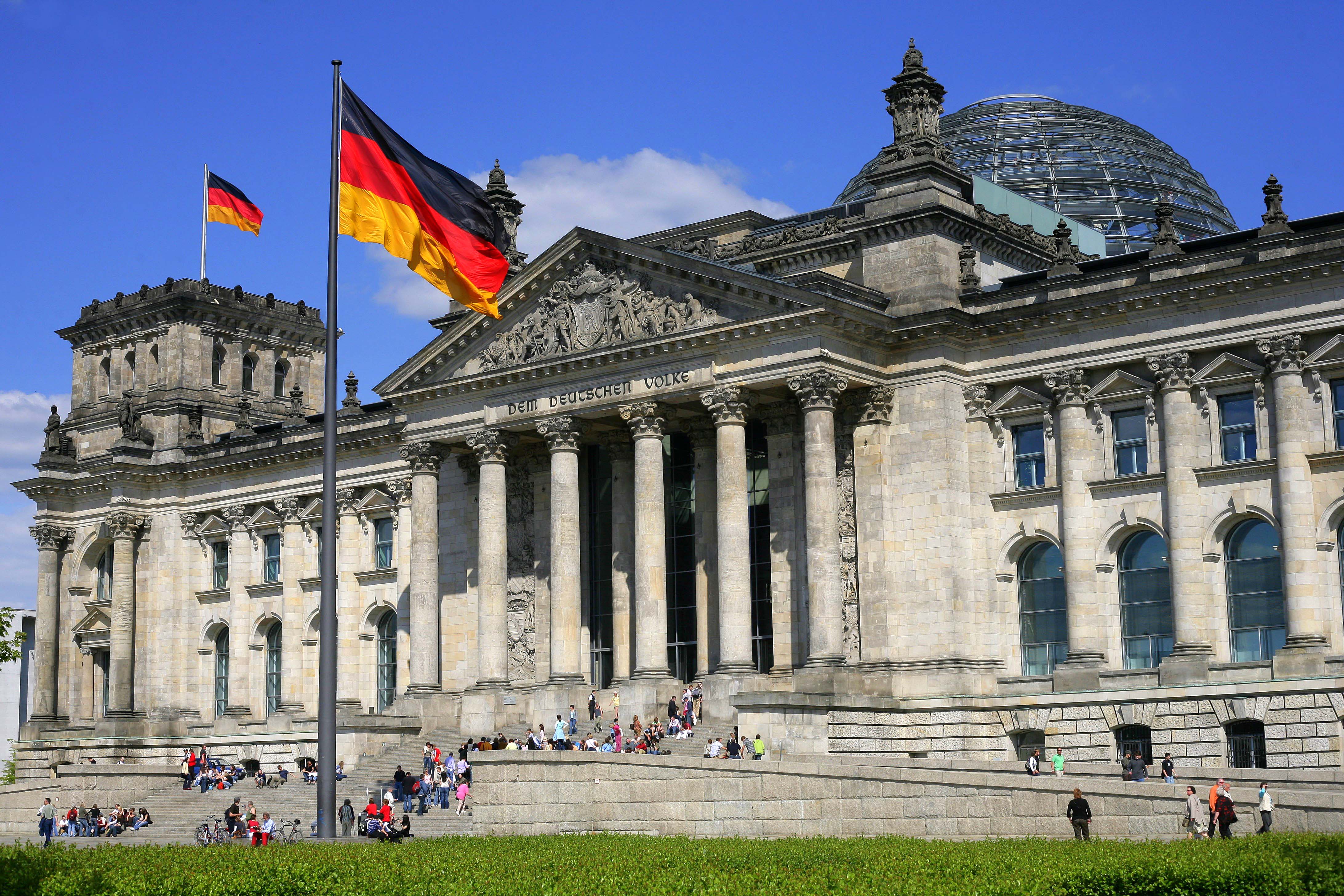 GENOCIDE ACCUSATION AS A FORM OF PUNISHMENT
GENOCIDE ACCUSATION AS A FORM OF PUNISHMENT
Mehmet Oğuzhan TULUN 31.05.2016
-
 ATTEMPTS AT DIASPORIZING TURKISH ARMENIANS – II
ATTEMPTS AT DIASPORIZING TURKISH ARMENIANS – II
AVİM 18.01.2019 -
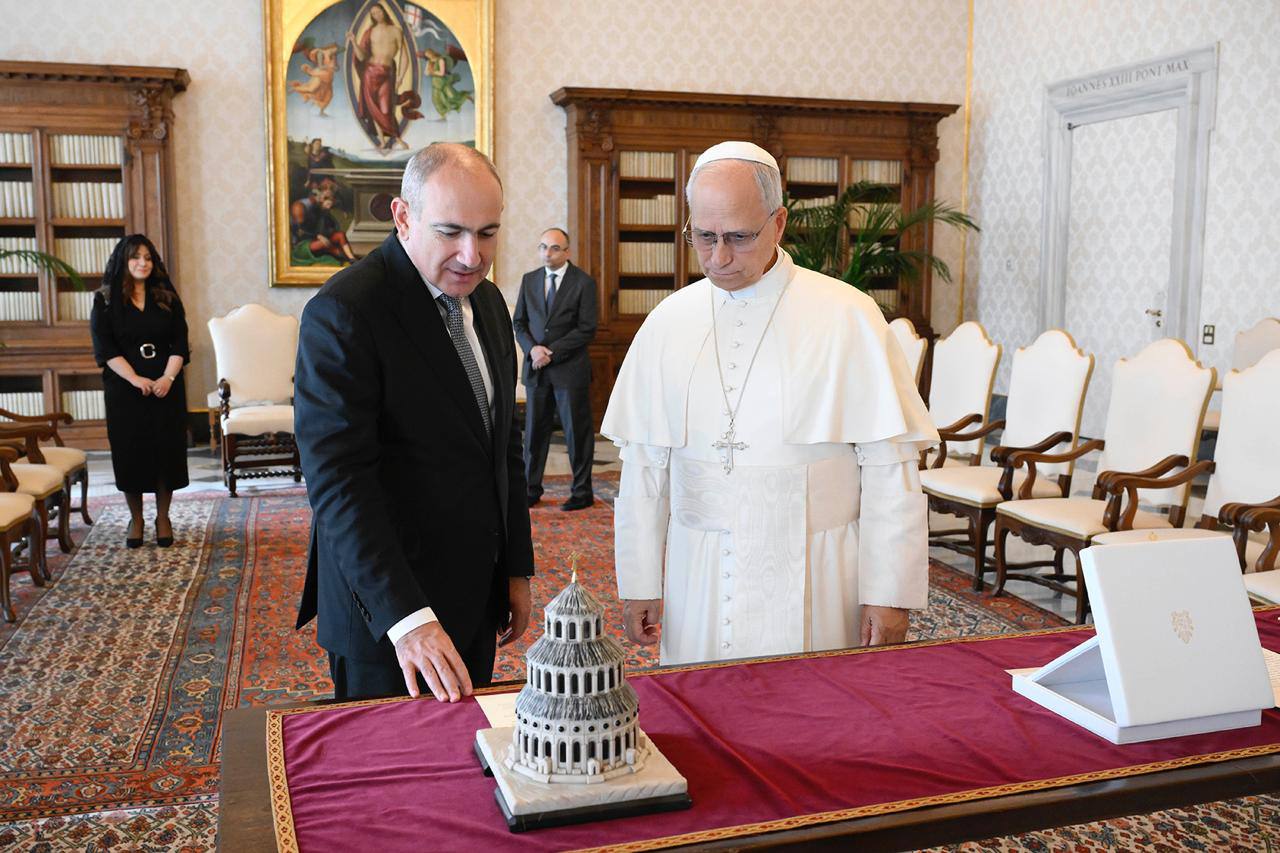 CHURCH-STATE TENSIONS IN ARMENIA: THE ARF’S HARSH RESPONSE AND ITS REGIONAL IMPLICATIONS
CHURCH-STATE TENSIONS IN ARMENIA: THE ARF’S HARSH RESPONSE AND ITS REGIONAL IMPLICATIONS
Hazel ÇAĞAN ELBİR 04.02.2026 -
ARMENIA 2013 (3)
Ömer Engin LÜTEM 08.01.2013 -
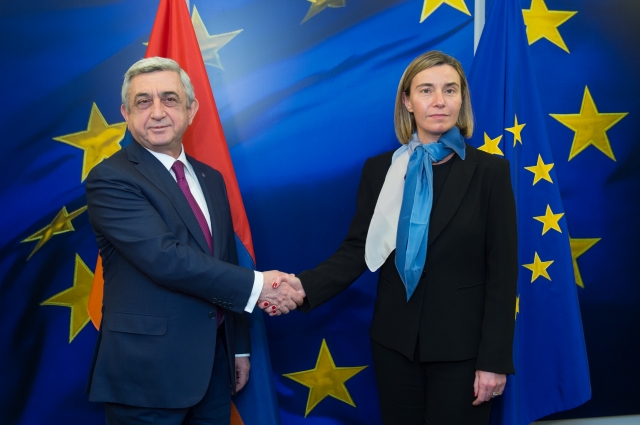 A NEW PAGE FOR ARMENIA-EU RELATIONS?
A NEW PAGE FOR ARMENIA-EU RELATIONS?
Özge Nur ÖĞÜTCÜ 06.04.2017 -
 INTRODUCING RELIGION INTO A LEGAL AND HISTORICAL DISPUTE
INTRODUCING RELIGION INTO A LEGAL AND HISTORICAL DISPUTE
Mehmet Oğuzhan TULUN 12.04.2015
-
25.01.2016
THE ARMENIAN QUESTION - BASIC KNOWLEDGE AND DOCUMENTATION -
12.06.2024
THE TRUTH WILL OUT -
27.03.2023
RADİKAL ERMENİ UNSURLARCA GERÇEKLEŞTİRİLEN MEZALİMLER VE VANDALİZM -
17.03.2023
PATRIOTISM PERVERTED -
23.02.2023
MEN ARE LIKE THAT -
03.02.2023
BAKÜ-TİFLİS-CEYHAN BORU HATTININ YAŞANAN TARİHİ -
16.12.2022
INTERNATIONAL SCHOLARS ON THE EVENTS OF 1915 -
07.12.2022
FAKE PHOTOS AND THE ARMENIAN PROPAGANDA -
07.12.2022
ERMENİ PROPAGANDASI VE SAHTE RESİMLER -
01.01.2022
A Letter From Japan - Strategically Mum: The Silence of the Armenians -
01.01.2022
Japonya'dan Bir Mektup - Stratejik Suskunluk: Ermenilerin Sessizliği -
03.06.2020
Anastas Mikoyan: Confessions of an Armenian Bolshevik -
08.04.2020
Sovyet Sonrası Ukrayna’da Devlet, Toplum ve Siyaset - Değişen Dinamikler, Dönüşen Kimlikler -
12.06.2018
Ermeni Sorunuyla İlgili İngiliz Belgeleri (1912-1923) - British Documents on Armenian Question (1912-1923) -
02.12.2016
Turkish-Russian Academics: A Historical Study on the Caucasus -
01.07.2016
Gürcistan'daki Müslüman Topluluklar: Azınlık Hakları, Kimlik, Siyaset -
10.03.2016
Armenian Diaspora: Diaspora, State and the Imagination of the Republic of Armenia -
24.01.2016
ERMENİ SORUNU - TEMEL BİLGİ VE BELGELER (2. BASKI)
-
AVİM Conference Hall 24.01.2023
CONFERENCE TITLED “HUNGARY’S PERSPECTIVES ON THE TURKIC WORLD"









